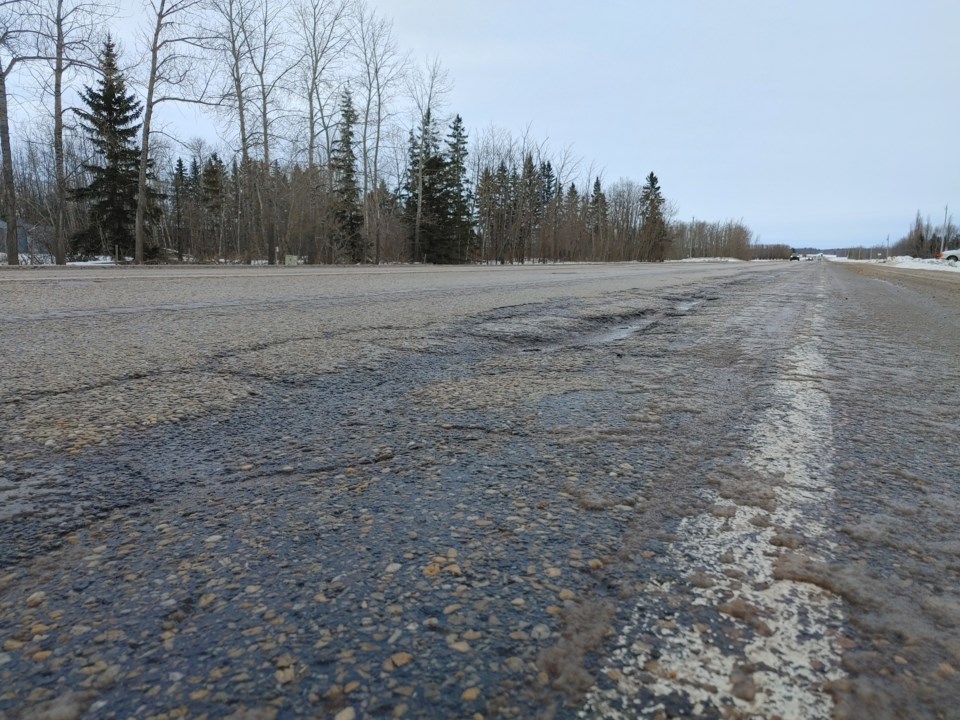A "considerable" shortfall in infrastructure funding in the provincial budget will force local governments to choose between raising taxes or living with crumbling roads, says Alberta Municipalities (ABmunis).
The 2024 budget marks a major change in funding arrangements between the province and municipalities, as the Local Government Fiscal Framework (LGFF) officially replaces the Municipal Sustainability Initiative.
ABmunis says its members are grappling with infrastructure deficits throughout the province, and had called for $1.75 billion in infrastructure funding to be delivered through the LGFF formula. The 2024 budget allocated about $1 billion less than that, with $722 million for infrastructure to be disbursed through the municipal fiscal framework and another $2 million in transition funding for a few municipalities, a senior policy analyst with ABmunis said Friday during a media event.
"That's a considerable shortfall and our association is certainly very disappointed with that outcome," the ABmunis analyst said.
The additional billion dollars, "is just the start on what we need to start working on infrastructure in each of our municipalities," said ABmunis president Tyler Gandam.
"We've got a $30 billion infrastructure deficit across the province," Gandam said. "So, it's either coming from the province, we're getting support from the federal government, we continue to raise property taxes at home, or we watch our infrastructure crumble — so, sidewalks, roads, underground infrastructure, water and wastewater, all of the things that municipalities need to maintain for the residents we have now, let alone the growth that we're seeing across the province."
Along with LGFF funding, five other programs provide additional funding to municipalities for infrastructure projects like water an bridges, which brings the total amount to $912 million. While this is an on-paper increase from last year's budget, the ABmunis analyst said it is misleading, because a significant portion of MSI funding for the previous three years was "front loaded" in the 2021 budget.
"So, the funding has basically been static for the last four years in terms of the total infrastructure funding," they said.
Provincial funding for infrastructure has dropped from about $420 per person in 2011 to about $150 per person today, according to ABmunis.
Increased education property taxes
Education property tax rates will be frozen in the 2024-25 budget. While the rate hasn't increased, property values and the amount of development has, meaning the total amount being collected from Albertans at the local level will be about $229 million higher this year.
Education property taxes are collected at the municipal level and are transferred to the province as general revenue. The additional $229 million being collected in 2024-25 represents a 9.2 per cent increase in education property tax revenue for the province, while the education budget itself has only increased by 4.7 per cent, according to ABmunis.
About a third of municipal property tax bills Albertans pay goes to the provincial government. Major tax increases coming from the province puts pressure on municipal councils when drafting their own budgets, and creates a "challenge for them to add any other increases to fund the municipality's own operations. It's a considerable concern to us to see such a significant increase in education, property taxes," the ABmunis analyst said.




